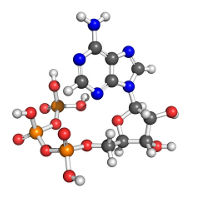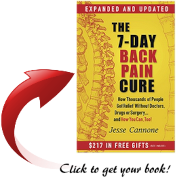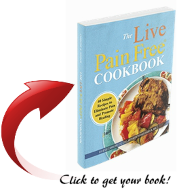 According to an article on LiveStrong.com, Dr. Adam Dave mentioned that proteolytic enzymes are, in a nutshell, “a specific class of enzyme whose function is to break down protein.” Okay, doesn’t sound too exciting, right? Well, keep that thought while I get into today’s post. And also keep in mind that proteolytic enzymes are the “good guys” in our bodies that perform critical and vital functions to, literally, keep us alive. In this post, I would like to focus on systemic proteolytic enzymes, which are found active in our circulatory system, not the ones in the digestive tract responsible for breaking down the food we eat. The use of proteolytic enzymes in the area of medicine has been gaining more popularity as various clinical studies have indicated their benefits in inflammatory conditions, blood flow and viscosity, as well as in our immune systems.
According to an article on LiveStrong.com, Dr. Adam Dave mentioned that proteolytic enzymes are, in a nutshell, “a specific class of enzyme whose function is to break down protein.” Okay, doesn’t sound too exciting, right? Well, keep that thought while I get into today’s post. And also keep in mind that proteolytic enzymes are the “good guys” in our bodies that perform critical and vital functions to, literally, keep us alive. In this post, I would like to focus on systemic proteolytic enzymes, which are found active in our circulatory system, not the ones in the digestive tract responsible for breaking down the food we eat. The use of proteolytic enzymes in the area of medicine has been gaining more popularity as various clinical studies have indicated their benefits in inflammatory conditions, blood flow and viscosity, as well as in our immune systems.
The Relationship Of Proteolytic Enzymes & The Immune System
In order to understand the function of proteolytic (systemic) enzymes, you’ll need to know what goes on when our human body encounters, for example, an injury that causes tissue damage. According to the Elmhurst Virtual Chembook: Prostaglandins, our immune system, namely the white blood cells, engulfs the area of tissue damage to protect it from further tissue damage. As a result, prostaglandins, a type of hormone, is released that starts the clotting process. Our amazing immune system creates this shield-like substance that pretty much seals the damaged area of the tissue, and this substance is known as fibrin. Once the damaged area has been sealed and protected, the body then starts the process of breaking down the excess fibrin around the area by releasing the necessary enzymes, and increasing blood flow and nutrients to it. These two opposing processes are kept in balance in a healthy body.
How Does Proteolytic Enzymes Work On Pain & Inflammation?
According to an article in Nutrition Review titled Controlling Inflammation With Proteolytic Enzymes (by Lane Lenard PhD, Ward Dean MD and Jim English), proteolytic enzymes are effective in breaking up “pathogenic immune complexes” (i.e., excess fibrin and scar tissues) and “enhancing lymphatic drainage”. In essence, they enhance blood follow, allowing the body to send more blood, oxygen and nutrients to the damaged tissue, cleansing the blood of toxins, and facilitating the healing process.
Without a good balance of proteolytic enzymes, your blood can turn to sludge from too much scar tissue as a result of unmanaged fibrin production. This negative effect on your circulatory system will not only put a roadblock on the healing process, but ultimately result in other conditions, such a chronic inflammation, hypertension, cardiovascular diseases and even arthritis.
Why The Drop In Proteolytic Enzymes Levels?
Unfortunately, due to our age, our fitness level, stress, the environment, diet or some condition we have (e.g., high blood pressure or triglycerides), the nice balance between blood clotting via the fibrin and the clean-up process of scrubbing away the excess fibrin and scar tissues becomes disrupted. In fact, if left unmanaged, fibrin continues to be created and applied to the damaged tissue, constricting blood flow to the area and limiting the needed oxygen and nutrients for the healing process. And thus, instead of acute inflammation, the body experiences chronic inflammation, resulting in more pain and less chances of healing.
In the book Enzyme Therapy (Vantage Press, 1972), Dr. Max Wolf chronicled his research on enzyme therapy, concentrating on the anti-inflammatory characteristics of enzymes and their uses on patients with cancer, multiple sclerosis (MS) and other conditions related to inflammation. During his research he discovered that young adults have significantly higher levels of proteolytic enzymes in their bodies as compared to the elderly. And thus, as we age, our levels of proteolytic enzymes decrease significantly. This explains why the older we get, the harder it is to get rid of pain.
But the good news is, Dr. Wolf noticed that enzyme therapy resulted in “frequently occurring remissions” in MS patients. In a recent study published in the Journal of Medicine, Science, Sports and Exercise, it was found that proteolytic enzymes, such as in the supplementation of protease, had therapeutic effects in the treatment of inflammation and muscle function.
Proteolytic Enzymes Supplementation
It is a fact that we naturally lose our levels of proteolytic enzymes over time. And what compounds the decrease are the ills of modern society, such as our environment, stress, or the poor nutritional content of the foods we eat. Those factors certainly make it difficult to replenish our proteolytic enzyme levels to a point where it can effectively balance the immune system’s activities, and moreover, combat inflammation and pain. If you are currently experiencing chronic pain, then proteolytic enzymes supplementation may be a solution for you. In the Nutrition Review article Controlling Inflammation With Proteolytic Enzymes, the authors listed the following as examples of proteolytic enzymes which are “essential regulators and modulators of the inflammatory response”:
- Rutin
- Papain
- Trypsin
- Bromelain
- Pancreatin
- Chymotrypsin
An article titled NSAID Pain Relievers Raise Heart Risks on WebMD, a well-respected site, mentioned that “nonsteroidal anti-inflammatory medications (NSAIDs), commonly used to treat joint and muscle aches and pain … significantly increase the risk of cardiovascular events in patients who take them regularly”. The article went on to say that the safest way to deal with joint and muscle pain is through lifestyle changes, such as by losing weight and exercising on a regular basis. They did not recommend taking NSAIDs on a regular basis. And, moreover, it does make a strong case for exploring alternate treatments that are safe and effective in providing pain relief.
If you are interested in an all-natural, 100%-safe proteolytic enzymes supplementation for your chronic pain, then you may want to check out the product Heal-n-Soothe on The Healthy Back Institute page.



